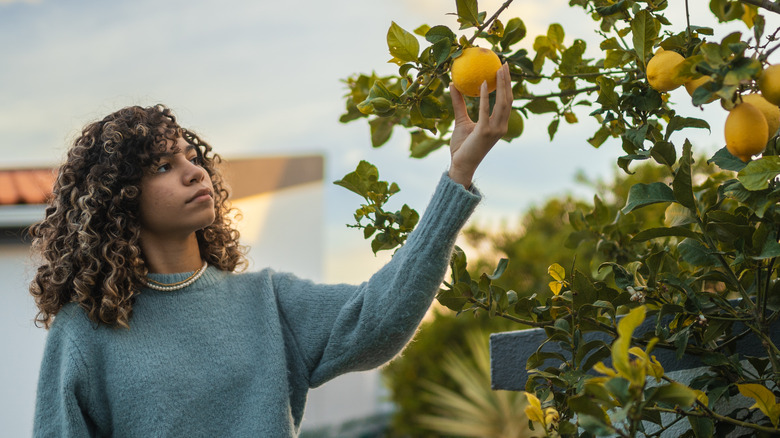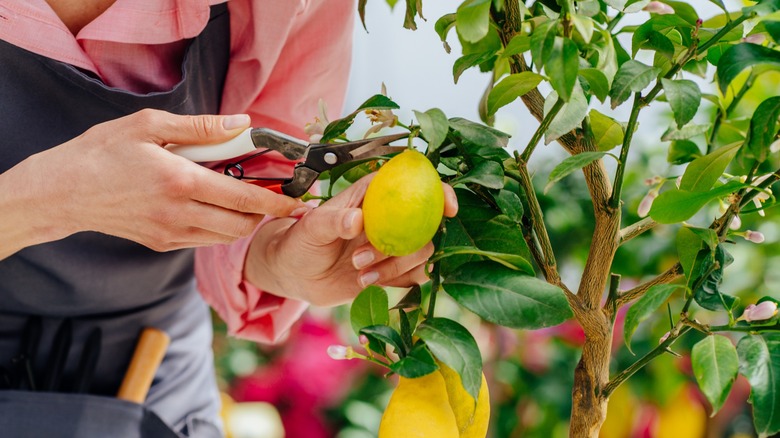How And When To Harvest Lemons From Your Fruit Tree
A backyard lemon tree is beautiful and will provide you with some fresh fruit. An important aspect of growing and caring for a lemon tree is knowing when the fruit is ripe for harvest. This is especially important for lemons, as citrus fruit typically doesn't ripen after being plucked, so timing is everything. Lemon trees can produce ripe produce all year round in warm climates, but peak harvesting takes place during the fall and winter seasons. When the lemons are large, yellow, and firm to the touch, you can harvest them using pruning shears or your hands.
When judging the ripeness of lemons, the first thing to look at is the color. They should be bright yellow or yellow-green. They should also feel firm to the touch and not too soft. The skin should feel thick and slightly resist pressure when you squeeze it. A ripe lemon won't be rock solid, but if the skin looks wrinkly or feels squishy, it's definitely overripe. Size matters as well, and they should be around 2 inches in diameter. However, the only way to really know whether a lemon is ripe is to taste it. Conduct a taste test on one of the ripe-looking fruits, and if it has that perfect lemony flavor, you can harvest any other lemons that are the same size and color. If your fruit checks all these boxes, you can begin harvesting from your tree.
How to harvest ripe lemons
Once you've determined that your lemons are ready for harvest by their color, firmness, size, and taste, it's time to remove them from the tree. Harvesting lemons should be an easy task, just try not to damage the fruit or branches. You can use a pair of small shears and snip right above the fruit, or you can forgo the gardening tools altogether and simply twist the lemons off with your hand. Twisting, as opposed to pulling, is a gentler method for plucking lemons off a tree and is less likely to cause damage. Gardening gloves aren't an absolute necessity, but they're helpful if you want some extra protection from any prickly branches.
Trim off any excess stem lengths on the lemons, but be careful to not cut into the fruit itself. Once you have collected all of your ripe lemons, store them in a cool and dry place until you're ready to use them. In most cases, a regular fruit bowl on a kitchen counter or in the refrigerator should do just fine, and citrus fruit can last up to eight weeks in the refrigerator. As long as you thoroughly check for ripeness, store the fruit properly, and practice a little patience, you'll get to enjoy a bountiful supply of fresh, tasty lemons right from your own tree.

